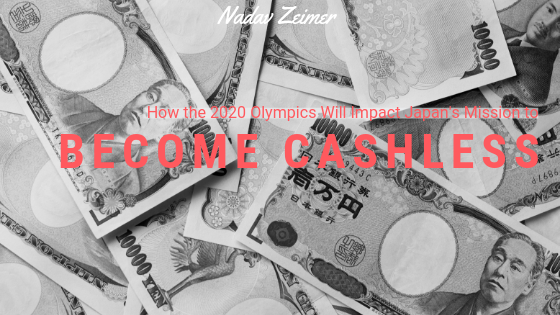The use of cash as a payment method has been on a slow downward slide, due to the emergence of credit and debit cards, and other digital payment methods. But, Japan is an outlier. The third largest economy in the world, those in Japan still prefer using paper money and coins to complete their transactions. The cost of maintaining a cash country rings up at an estimated $18 billion per year. This comes from the cost of operating and maintaining ATMs, cash registers and vehicles to transport money around, and is mainly the responsibility of the financial industry.
This might change in 2020 when Tokyo hosts the Olympic Games. Billions of dollars will be spent by near hundreds of thousands of visitors, and many of those visitors will be used to paying with their credit or debit card. Japan’s current financial system will be unable to handle the influx of transactions, both those made with cash and those using a form of electronic payment.
The country’s prime minister wants 40 percent of payments to be cashless by 2025. To achieve this, the government plans to offer tax breaks and subsidies for companies. While the obvious thought is that the push will be to debit and credit cards, some look to cryptocurrency as the key to the switch. The largest bank in the country is working with an internet company to build a blockchain-based consumer payment network before the Olympics. Two other companies are working to create their own digital currency for the country.
Because the country is fairly savvy with technology and cryptocurrency trading is already a widespread practice, it’s likely Japan could jump straight from cash to crypto. In the foreign exchange market, Japanese traders account for the majority of all global margin trading. Cryptocurrency is Asia’s largest market. Japanese retail investors are partially the reason why Bitcoin’s price jumped so drastically in late 2017. Though Japan’s current shopping system is low-tech, the country has shown they aren’t opposed to the integration of higher-tech options. Prepaid card services are relatively popular and accepted by railways, grocery and convenience stores.
Transitioning to a cash-less society could remake Japan’s economy. All purchases, ranging from small daily purchases to large transactions between banks could be made at a fraction of the current price and with minimal delay. Compared to cryptocurrency, using a credit card seems like a slow and outdated process. This push could even allow Japan to reclaim its position as a leader in technology and finance.

